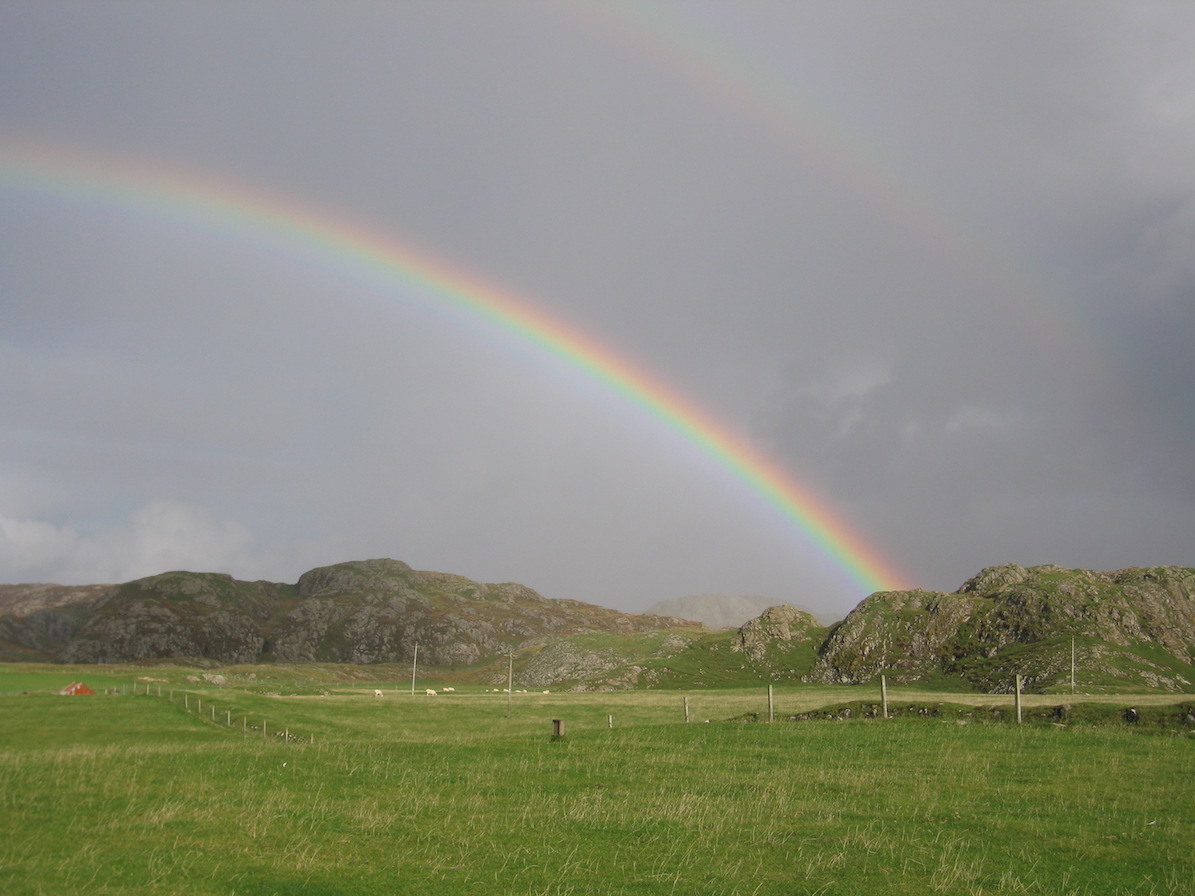Urgent: Christians and Climate Change
Urgent: Christians and Climate Change
 In September, when many churches celebrate harvest, Churches Together in Britain and Ireland focus on care for creation. They call the period from 1st September to 4th October Creation Time. This year Bible Study and Sermon material has been produced by Eco Congregation Scotland to fit with the Common Lectionary readings from the Gospel according to Luke. At the start of Creation Time, John Weaver writes:
In September, when many churches celebrate harvest, Churches Together in Britain and Ireland focus on care for creation. They call the period from 1st September to 4th October Creation Time. This year Bible Study and Sermon material has been produced by Eco Congregation Scotland to fit with the Common Lectionary readings from the Gospel according to Luke. At the start of Creation Time, John Weaver writes:
What is happening to our weather? - a question echoing around the world - it’s been the hottest, driest, wettest, windiest; the worst cyclone, hurricane, tornado season since records began. In 2015 the average surface temperature reached 1.010C above pre-industrial levels, and was 0.13°C warmer than 2014. Already in 2016 each month has been warmer than the previous one and we are again heading for the warmest year on record. This will continue to enhance the extreme weather events for the UK, but even more serious is the effect on food production in the developing world with reduced yields and drought.
We know the science, the anthropogenic green house gasses: CO2, Methane, Nitrous Oxide and CFCs are the cause of global warming. The results of global warming are seen around the world, for example in the rising sea levels for the Pacific islands, water shortages for power generation and irrigation of crops in Nepal and Malawi, drought and fire risk in California and Australia, and intense weather events in various parts of the world such as India and Louisiana.
In his 2015 encyclical, Laudato si’, mi’ Signore, Pope Francis expressed his concern about our common home and the need for global, sustainable, integral, development. He maintained that the destruction and wanton disregard for the environment is both a sin against humanity and against God, demonstrated by global inequality and injustice. He observed that world leaders fail to hear the cry of the earth and the cry of the poor.
There have been high hopes expressed about the discussions in Paris, and there is no doubting the historic first step that the final agreement by 195 countries represents to stave off the worst effects of catastrophic global warming, but the decisions are expressed in well-meaning commitments for future action rather than current legally binding agreements. We may observe that there is a predominance of vague words, ‘resolves’, ‘recognises’, ‘urges’, ‘emphasises’, ‘affirms’, ‘takes account of’ in the COP21 agreement, lacking a legally binding commitment. Perhaps, following Paris, the world leaders will now ensure that mitigation will begin in earnest. However the noises from the Republican camp in the US are not encouraging, and in a post-Brexit Britain Theresa May’s past voting record shows that she generally voted against measures to prevent climate change.
The situation is increasingly urgent. Scientists have warned that if greenhouse gas emissions continue to rise, we will pass the threshold beyond which global warming becomes catastrophic and irreversible. That threshold is estimated as a temperature rise of 20C above pre-industrial levels, and on current emissions trajectories we are heading for a rise of about 50C by the end of this century.
As Christians we worship God who created the universe and pronounced that it was good (Genesis 1); God who is in a covenant relationship with the whole of creation (Genesis 9). We follow Christ, who is co-creator with God (John 1:1-4), and who came to redeem the whole cosmos (John 3:16). Empowered by the Holy Spirit, God’s presence in all creation, our role is to become truly Christ-like, the first fruits of the Spirit, as creation awaits complete redemption (Romans 8:18-25). We live with broken relationships (Genesis 3) in a world fractured by human rebellion, which seeks the power, control and wealth that belongs to God (Genesis 3:5). But we also live with the ultimate hope of God’s promises and purposes, God who will finally renew the whole of creation (Revelation 21:1-4) and destroy those who lust after power and wealth (Revelation 19). We are accountable to God and are called to follow Christ (Mark 8:34) in his mission in and for the world. We are called to a life of self-sacrificial concern for the world and its people, and worship God through humility, justice and merciful action (Micah 6:8).
We see a growing movement of people involved in campaigning for greater, fair and more ambitious action on climate change. Christians have a central role in many countries in these movements keeping their governments accountable and pushing for more and better action both domestically and internationally.
The Big Church Switch might be mentioned as an example of the way in which churches in the UK are seeking to promote the use renewable energy as a contribution to addressing climate change. The Big Church Switch calls on churches and individual Christians of all denominations to switch their energy supply (electricity) from fossil fuels to renewable energy, as part of their commitment to care for our neighbours and for the earth – our common home. Very many have already done so.
There is Hope. Our hope is focused and centred in God. In Colossians 1:15-20, Christ is seen as the agent of creation, the sustainer of creation and, as redeemer, the one who holds creation together. God is deeply and passionately involved in his world; God is no absentee landlord, but indwelling, accompanying, incarnate, and present as Holy Spirit. Our ultimate hope is in God and is eternal, while human hope is temporal and uncertain. Christians are called to a hopeful discipleship in the light of our ultimate hope in God’s promises and purposes.
 John Weaver is a Baptist minister, chair of the John Ray Initiative, connecting Environment, Science and Christianity, and formerly principal of the South Wales Baptist College and Dean of the Faculty of Theology, Cardiff University.
John Weaver is a Baptist minister, chair of the John Ray Initiative, connecting Environment, Science and Christianity, and formerly principal of the South Wales Baptist College and Dean of the Faculty of Theology, Cardiff University.
This story was first published on Churches Togehter in Englad website, and is used with permission.